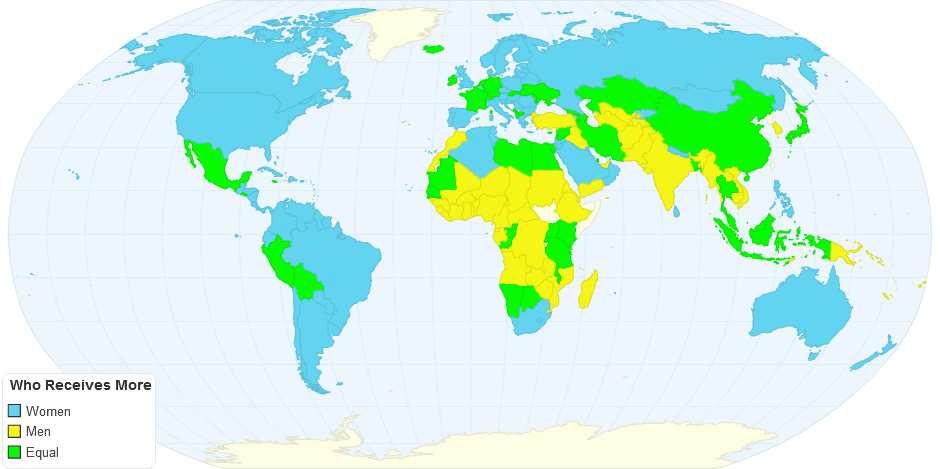This chart shows Who Receives More Education.
Education is the process of facilitating learning, or the acquisition of knowledge, skills, values, beliefs, and habits. Educational methods include storytelling, discussion, teaching, training, and directed research. Education frequently takes place under the guidance of educators, but learners may also educate themselves.Education can take place in formal or informal settings and any experience that has a formative effect on the way one thinks, feels, or acts may be considered educational. The methodology of teaching is called pedagogy.Education is commonly and formally divided into stages such as preschool or kindergarten, primary school, secondary school and then college, university or apprenticeship.
The right to education is a universal entitlement to education. This is recognized in the International Covenant on Economic, Social and Cultural Rights as a human right that includes the right to free, compulsory primary education for all, an obligation to develop secondary education accessible to all, in particular by the progressive introduction of free secondary education, as well as an obligation to develop equitable access to higher education, ideally by the progressive introduction of free higher education.
The right to education also includes a responsibility to provide basic education for individuals who have not completed primary education. In addition to these access to education provisions, the right to education encompasses the obligation to rule out discrimination at all levels of the educational system, to set minimum standards and to improve the quality of education.
10 years ago

